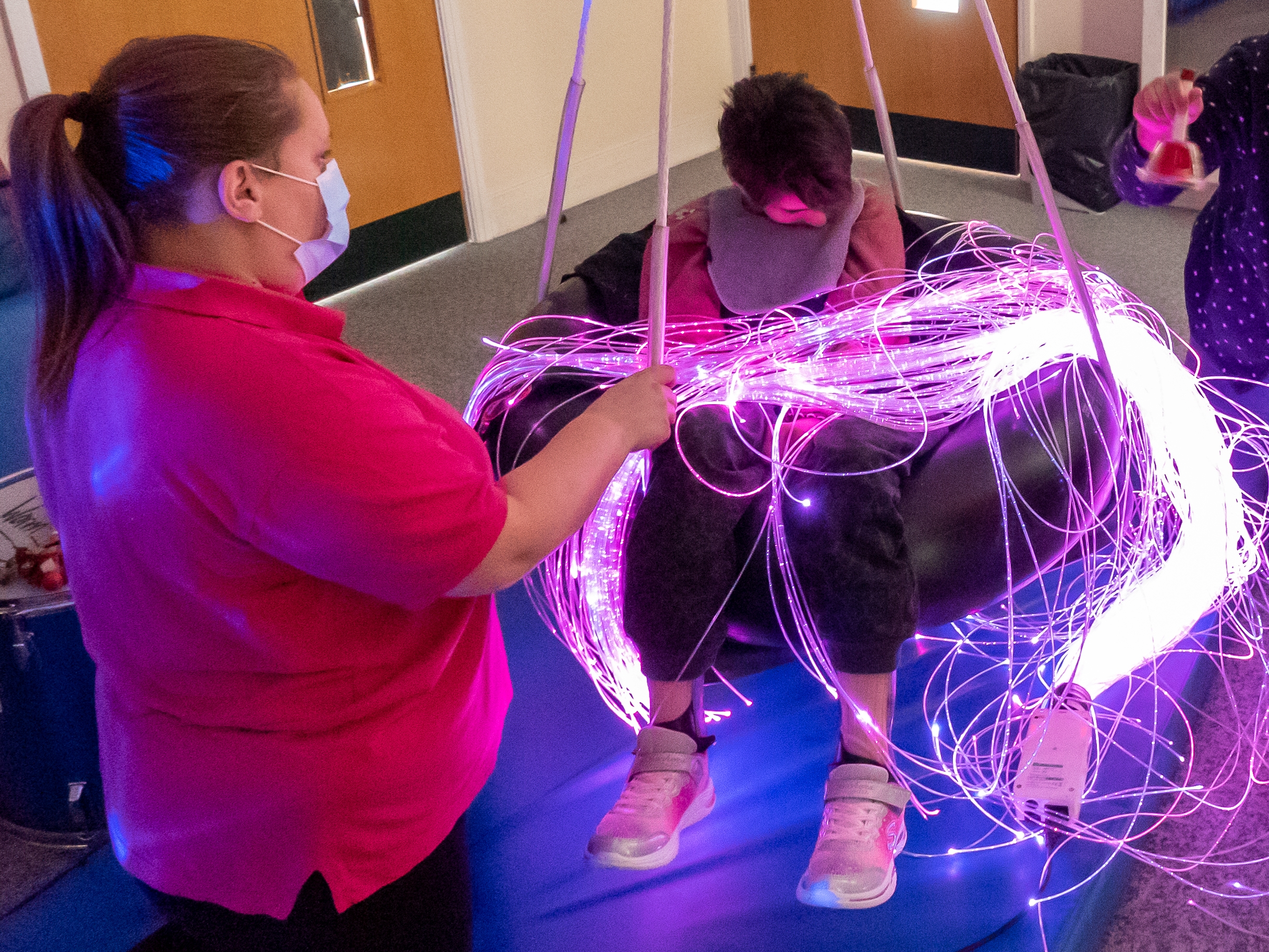Sensory processing and loss
What is sensory processing and loss?

What is sensory processing and loss?
In early childhood, our brain development is especially sensitive to our senses. This presents an opportunity not only to expose the senses to new things, but also to find the right sensory environment for other development areas to flourish.
Our five main senses are: touch, sight, hearing, taste and smell
We also have three other senses:
1. The feeling of where our body is in space (vestibular sense)
2. Our body position (proprioceptive sense)
3. Our feeling of what’s happening inside our body, for example feeling hungry or hot (interoceptive sense)
What your child might experience
Your child’s brain is busy adapting to the sensory information at hand, building a picture of the world and a sense of themselves. Your child is learning what he or she enjoys, and what they don’t like!
Your child may have a range of sensory experiences:
- If your child is deaf or blind, they will become better at processing other senses.
- They may rely on you to regulate their senses – for example, they feel hungry, so they cry and you feed them
- They may be sensory avoiders, which means they over-react to senses and therefore avoid situations, like having certain foods in their mouth or wearing certain clothes
- They may be sensory seekers – so, can’t get enough of certain senses like swinging or moving in a certain way
Our services
Find out how your child can access our specialist school for children with neurodisabilities.
Therapy for your childFind out how we can support your child with our therapy services for children aged 3-11 in preschool and school.
Support for your babyFind out more about supporting your baby with our early intervention services
